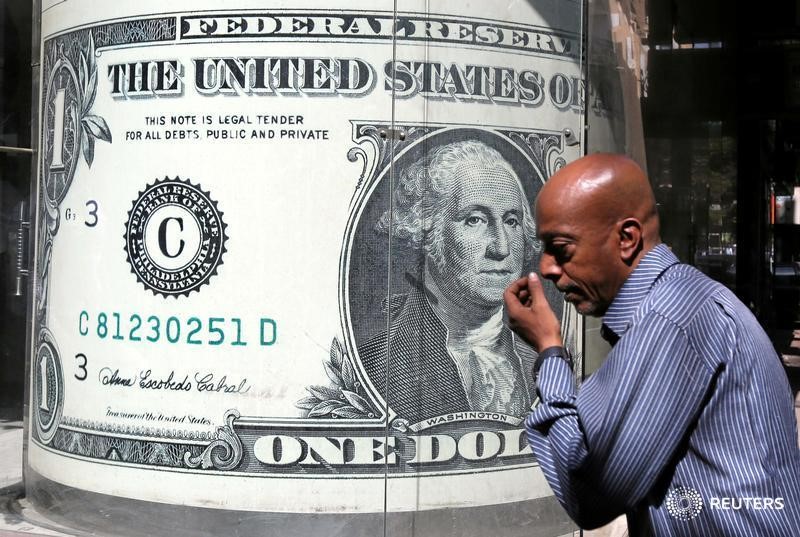By Peter Nurse
Investing.com - The U.S. dollar slumped in early European trade Thursday after Federal Reserve chair Jerome Powell pointed to smaller rate hikes ahead, boosting risk appetite to the detriment of this safe haven.
At 03:05 ET (08:05 GMT), the Dollar Index, which tracks the greenback against a basket of six other currencies, fell 0.2% to 105.705, extending Wednesday's more than 1% drop.
The index fell over 5% in November, its worst monthly showing since September 2010.
"Moderating the pace of rate increases may come as soon as the December meeting," Powell said in a speech on Wednesday at the Brookings Institution event in Washington.
The U.S. central bank has increased interest rates by a hefty 75 basis points at each of its last four policy-setting meetings. Softer than expected inflation data had raised expectations that the policymakers would agree to tone down the rate hikes, but Powell’s comments were seen as more dovish than expected.
USD/JPY fell 1.1% to 136.50, dropping to a three-month low as U.S. yields fell in response to Powell's comments, with the benchmark 10-year yield dropping to a near two-month low of 3.6%. The pair fell over 7% in November, its worst month in 14 years.
EUR/USD rose 0.1% to 1.0417, not far removed from the five-month high of 1.0497 seen at the start of this week.
However, the euro's gains have been tempered by a 2.8% slump in German retail sales in October, setting an ominous tone for a fourth quarter in which Europe's largest economy is widely expected to contract.
Eurozone consumer prices came in lower than expected on Wednesday, potentially pointing to an inflation peak having been reached in the region, triggering a lowering of rate hike bets for the European Central Bank.
GBP/USD rose 0.2% to 1.2081, heading towards last week's three-month peak of 1.2153, while the risk-sensitive AUD/USD climbed 0.3% to 0.6805.
USD/CNY fell 0.2% to 7.0709, continuing the previous session's strong gains on growing optimism that China will move to lift the country's strict COVID-19 restrictions in the country.
Two major Chinese cities have already relaxed some COVID restrictions this week amid growing public frustration towards the government’s "zero-COVID" policy.
This optimism has allowed the yuan to move higher despite the Caixin manufacturing PMI index showing that the country's important manufacturing shrank for a third consecutive month in November.
